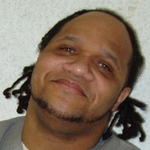
The death penalty carries the inherent risk of executing an innocent person. Since 1973 , at least 200 people who had been wrongly convicted and sentenced to death in the U.S. have been exonerated.
![]()
A Death Penalty Information Center database of every death-row exoneration since 1972.
![]()
The Most Common Causes of Wrongful Death Penalty Convictions: Official Misconduct and Perjury or False Accusation
Given the fallibility of human judgment, there has always been the danger that an execution could result in the killing of an innocent person. Nevertheless, when the U.S. Supreme Court held the administration of the death penalty to be unconstitutional in 1972, there was barely any mention of the issue of innocence in the nine opinions issued. Although mistakes were surely made in the past, the assumption prevailed that such cases were few and far between. Almost everyone on death row was surely guilty.
However, as federal courts began to more thoroughly review whether state criminal defendants were afforded their guaranteed rights to due process, errors and official misconduct began to regularly appear, requiring retrials. When defendants were now afforded more experienced counsel, with fairly selected juries, and were granted access to scientific testing, some were acquitted and released. Since 1973, 200 former death-row prisoners have been exonerated of all charges related to the wrongful convictions that had put them on death row.
It is now clear that innocent defendants will be convicted and sentenced to death with some regularity as long as the death penalty exists. It is unlikely that the appeals process—which is mainly focused on legal errors and not on factual determinations—will catch all the mistakes. Reforms have been begrudgingly implemented, increasing both the costs and the time that the death penalty consumes, but have not been sufficient to overcome human error. The popularity and use of capital punishment have rapidly declined as the innocence issue has gained attention. The remaining question is how many innocent lives are worth sacrificing to preserve this punishment.
DPIC has led the way in highlighting the issue of innocence. Its list of exonerated individuals is presented in a searchable database, with links to more complete descriptions of each case. DPIC has issued a series of reports on this issue, collecting the latest information on why so many mistakes occur. It also follows the related questions of whether innocent individuals have already been executed and whether some defendants are in fact innocent, despite not being completely exonerated in the eyes of the law.

On August 28 , 2024 , a St. Louis County Circuit Court judge held an evidentiary hearing for Marcellus Williams (pictured), who has long maintained his innocence in the 1998 murder of Felicia Gayle. At this hearing, the office of St. Louis County Prosecuting Attorney ( PA ) Wesley Bell conceded that the prior administration, under Prosecuting Attorney Bob McCullogh, committed constitutional errors contributing to Mr. Williams’ unreliable conviction and death sentence. These errors include the…
On August 21 , 2024 , Marcellus Williams (pictured), who is scheduled to be executed on September 24 , 2024 , agreed to enter an Alford plea in exchange for a sentence of life without parole. This agreement would have ensured that Mr. Williams, who has always maintained his innocence in the 1998 murder of Felicia Gayle, would not be executed. But hours after Judge Bruce F. Hilton accepted the plea agreement, Attorney General Andrew Bailey asked the Missouri Supreme Court to block the deal,…

On August 14 , the Associated Press reported that the city of Edmond, Oklahoma agreed to pay $ 7 . 15 million to Glynn Simmons, the longest-incarcerated innocent person in the United States. Mr. Simmons spent 48 years in prison, including two years on death row, before he was released last July. Mr. Simmons was officially exonerated by a judge in December 2023 and received $ 175 , 000 from the state of Oklahoma, the maximum amount allowed for wrongful convictions under state law. Officials…

On August 7 , 2024 , Oklahoma’s Pardon and Parole Board voted 3 – 2 to recommend clemency for 52 -year-old Emmanuel Littlejohn, who is currently scheduled to be executed on September 26 . The final decision to grant clemency, reducing Mr. Littlejohn’s death sentence to life without parole, rests with Governor Kevin Stitt, who has only granted clemency once during his…

On July 1 , after waiting 41 years for his name to be cleared, Larry Roberts became the 200 th person exonerated from death row. A new Death Penalty Information Center analysis finds that Mr. Roberts’ experience illustrates a troubling trend: for innocent death-sentenced prisoners, the length of time between wrongful conviction and exoneration is increasing. In the past twenty years, the average length of time before exoneration has roughly tripled, and 2024 has the highest-ever average wait…